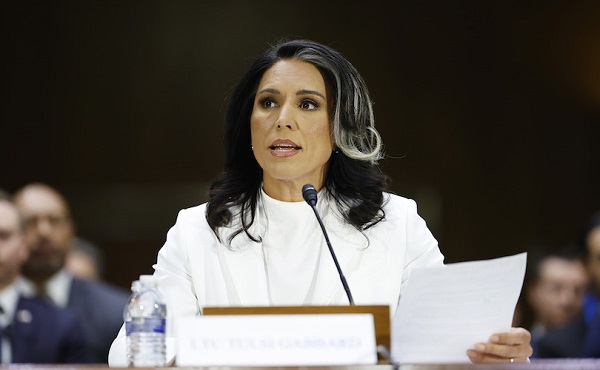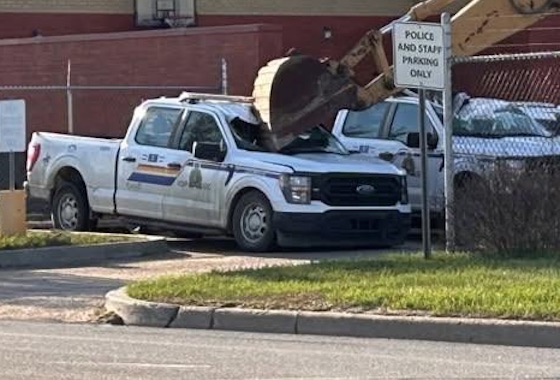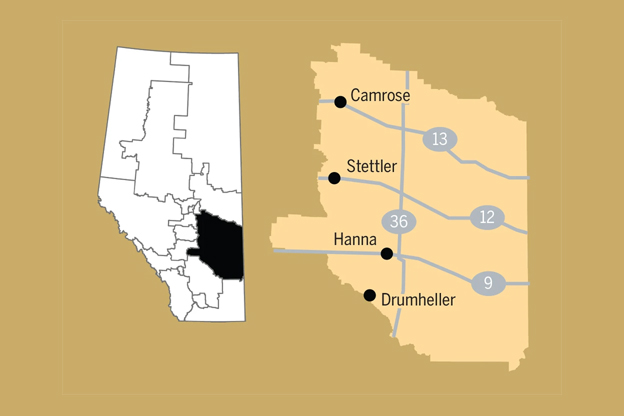Uncategorized
Venezuela allows US diplomats to stay, defusing showdown

CARACAS, Venezuela — Venezuela defused a potential showdown with the United States, suspending a demand that U.S. diplomats leave the country as Washington called on the world to “pick a side” in the South American nation’s fast-moving crisis.
Socialist President Nicolas Maduro broke relations with the United States on Wednesday after the Trump administration and many other nations in the region recognized opposition leader Juan Guaido as Venezuela’s interim president, a move that Maduro called a coup attempt.
Maduro gave U.S. diplomats three days to leave the country, but the Trump administration said it wouldn’t obey, arguing that Maduro is no longer Venezuela’s legitimate president. That set the stage for a showdown at the hilltop U.S. Embassy compound Saturday night, when the deadline was to expire.
But as the sun set on Venezuela’s capital, the Foreign Ministry issued a statement saying Maduro’s government was suspending the expulsion to provide a 30-day window for negotiating with U.S. officials about setting up a “U.S. interests office” in Venezuela and a similar Venezuelan office in the United States. The U.S. and Cuba had a similar arrangement for decades before the Obama administration restored diplomatic relations with the communist-run island.
The State Department did not confirm the Venezuelan government’s account, reiterating only that its priority remains the safety of its personnel and that it has no plans to close the embassy.
Earlier Saturday, Secretary of State Mike Pompeo told the U.N. Security Council: “Let me be 100
In the Security Council meeting, critics and supporters of Maduro’s government faced off in a reflection of the world’s deep divisions over Venezuela, which is mired in political confrontation as well as an economic collapse that has caused millions to flee the country.
During the debate, which was requested by the U.S., Pompeo urged all nations to end Venezuela’s “nightmare” and support Guaido.
“Now is the time for every other national to pick a side,” Pompeo said. “No more delays, no more games. Either you stand with the forces of freedom, or you’re in league with Maduro and his mayhem.”
Russian Ambassador Vassily Nebenzia charged that the Trump administration is trying “to engineer a coup” against Maduro. He said Venezuela doesn’t threaten international peace and security, and he accused “extremist opponents” of Maduro’s government of choosing “maximum confrontation,” including the artificial creation of a parallel government.
Nebenzia urged Pompeo to say whether the U.S. will use military force.
Pompeo later told reporters who asked for a response, “I am not going to speculate or hypothesize on what the U.S. will do next.”
Pompeo was accompanied to New York by Elliott Abrams, who was named a day earlier as the U.S. special representative for Venezuela. Abrams is a former assistant secretary of state for Latin America who worked at the White House when a 2002 coup in Venezuela briefly ousted Maduro’s predecessor, the late Hugo Chavez.
On his first day on the job, Abrams met with exiled leaders of Venezuela’s opposition. He also spoke by phone with Guaido, the leader of Venezuela’s opposition-controlled congress. Abrams reaffirmed U.S. support for Guaido as interim president, said Kimberly Breier, the current assistant secretary of state for the region.
The Security Council, the U.N.’s most powerful body, has not taken action on the Venezuelan crisis because of the divisions. The Security Council’s five veto-holding permanent members could not unite behind a statement on Venezuela, presenting widely differing texts.
The leaders of two of those council nations — France and Britain — joined Spain and Germany to turn up the pressure on Maduro, saying Saturday that they would follow the U.S. and others in recognizing Guaido as president unless Venezuela calls a new presidential election within eight days.
The European Union’s foreign policy chief, Federica Mogherini, said that if there is no announcement of a new election in the next days, the 28-nation bloc “will take further actions, including on the issue of recognition of the country’s leadership.”
Venezuelan Foreign Minister Jorge Arreaza dismissed the deadline.
“Europe is giving us eight days?” he asked the council. “Where do you get that you have the power to establish a deadline or an ultimatum to a sovereign people. It’s almost childlike.”
Arreaza asked that someone show him where in Venezuela’s constitution it says an individual can proclaim himself president.
Guaido says he is acting in accordance with two articles of the constitution that give the National Assembly president the right to hold power temporarily and call new elections.
While the council debated, a man identifying himself as Venezuela’s military attache in Washington posted a video saying he had broken with Maduro and now would report to Guaido.
“The armed forces have a fundamental role to play in the restoration of democracy,” Col. Jose Luis Silva said in the video, which he said was shot at his office in the Venezuelan Embassy in Washington, sitting in front of the nation’s red, blue and yellow flag.
He called on other members of the military to join him in supporting Guaido, saying they need to avoid “attacking” protesters whose only aim is to feed themselves.
Guaido celebrated Silva’s decision to defect.
“We welcome him and everyone who with honesty want to follow the constitution and the will of the Venezuelan people,” he said on social media after attending a small assembly in Caracas to discuss the opposition’s next moves.
Garrett Marquis, a spokesman for U.S. National Security Council, encouraged others to follow Silva’s lead “to protect
Venezuela’s top commanders have pledged loyalty to Maduro’s government in the days since Guaido declared himself interim leader on grounds that Maduro’s re-election last year was fraudulent — an allegation supported by the U.S., the European Union and many Latin American nations.
But support for Maduro’s rule is weaker among the military’s rank and file, whose households are suffering from widespread food shortages and hyperinflation like their civilian counterparts. Last week, a small National Guard unit stole a stockpile of weapons in what it said was an attempt to oust Maduro. The uprising was quelled and 25 guardsmen arrested.
The standoff has plunged troubled Venezuela into a new chapter of political turmoil that rights groups say has already left more than two dozen dead as thousands take to the street demanding Maduro step down.
___
Associated Press writer Manuel Rueda reported this story in Caracas and AP writer Edith M. Lederer reported from the United Nations.
Manuel Rueda And Edith M. Lederer, The Associated Press
Uncategorized
Poilievre on 2025 Election Interference – Carney sill hasn’t fired Liberal MP in Chinese election interference scandal

From Conservative Party Communications
“Yes. He must be disqualified. I find it incredible that Mark Carney would allow someone to run for his party that called for a Canadian citizen to be handed over to a foreign government on a bounty, a foreign government that would almost certainly execute that Canadian citizen.
“Think about that for a second. We have a Liberal MP saying that a Canadian citizen should be handed over to a foreign dictatorship to get a bounty so that that citizen could be murdered. And Mark Carney says he should stay on as a candidate. What does that say about whether Mark Carney would protect Canadians?
“Mark Carney is deeply conflicted. Just in November, he went to Beijing and secured a quarter-billion-dollar loan for his company from a state-owned Chinese bank. He’s deeply compromised, and he will never stand up for Canada against any foreign regime. It is another reason why Mr. Carney must show us all his assets, all the money he owes, all the money that his companies owe to foreign hostile regimes. And this story might not be entirely the story of the bounty, and a Liberal MP calling for a Canadian to be handed over for execution to a foreign government might not be something that the everyday Canadian can relate to because it’s so outrageous. But I ask you this, if Mark Carney would allow his Liberal MP to make a comment like this, when would he ever protect Canada or Canadians against foreign hostility?
“He has never put Canada first, and that’s why we cannot have a fourth Liberal term. After the Lost Liberal Decade, our country is a playground for foreign interference. Our economy is weaker than ever before. Our people more divided. We need a change to put Canada first with a new government that will stand up for the security and economy of our citizens and take back control of our destiny. Let’s bring it home.”
Uncategorized
Canada Needs A Real Plan To Compete Globally

From the Frontier Centre for Public Policy
Ottawa’s ideological policies have left Canada vulnerable. Strategic action is needed now
As Canada navigates an increasingly complex geopolitical landscape, the next federal government must move beyond reflexive anti—Americanism regardless of its political leanings. Instead, Canada should prioritize national interests while avoiding unnecessary conflict and subservience.
The notion that Canada can stand alone is as misguided as the idea that it is only an economic appendage of the United States. Both perspectives have influenced policy in Ottawa at different times, leading to mistakes.
Rather than engaging in futile name-calling or trade disputes, Canada must take strategic steps to reinforce its autonomy. This approach requires a pragmatic view rooted in Realpolitik—recognizing global realities, mitigating risks, governing for the whole country, and seizing opportunities while abandoning failed ideologies.
However, if Washington continues to pursue protectionist measures, Canada must find effective ways to counteract the weakened position Ottawa has placed the country in over the past decade.
One key strategy is diversifying trade relationships, notably by expanding economic ties with emerging markets such as India and Southeast Asia. This will require repairing Canada’s strained relationship with India and regaining political respect in China.
Unlike past Liberal trade missions, which often prioritized ideological talking points over substance, Canada must negotiate deals that protect domestic industries rather than turning summits into platforms for moral posturing.
A more effective approach would be strengthening partnerships with countries that value Canadian resources instead of vilifying them under misguided environmental policies. Expand LNG exports to Europe and Asia and leverage Canada’s critical minerals sector to establish reciprocal supply chains with non-Western economies, reducing economic reliance on the U.S.
Decades of complacency have left Canada vulnerable to American influence over its resource sector. Foreign-funded environmental groups have weakened domestic energy production, handing U.S. industries a strategic advantage. Ottawa must counter this by ensuring Canadian energy is developed at home rather than allowing suppressed domestic production to benefit foreign competitors.
Likewise, a robust industrial policy—prioritizing mining, manufacturing, and agricultural resilience—could reduce dependence on U.S. and Chinese imports. This does not mean adopting European-style subsidies but rather eliminating excessive regulations that make Canadian businesses uncompetitive, including costly domestic carbon tariffs.
Another key vulnerability is Canada’s growing military dependence on the U.S. through NORAD and NATO. While alliances are essential, decades of underfunding and neglect have turned the Canadian Armed Forces into little more than a symbolic force. Canada must learn self-reliance and commit to serious investment in defence.
Increasing defence spending—not to meet NATO targets but to build deterrence—is essential. Ottawa must reform its outdated procurement processes and develop a domestic defence manufacturing base, reducing reliance on foreign arms deals.
Canada’s vast Arctic is also at risk. Without continued investment in northern sovereignty, Ottawa may find itself locked out of its own backyard by more assertive global powers.
For too long, Canada has relied on an economic model that prioritizes federal redistribution over wealth creation and productivity. A competitive tax regime—one that attracts investment instead of punishing success—is essential.
A capital gains tax hike might satisfy activists in Toronto, but it does little to attract investments and encourage economic growth. Likewise, Ottawa must abandon ideological green policies that threaten agri-food production, whether by overregulating farmers or ranchers. At the same time, it must address inefficiencies in supply management once and for all. Canada must be able to feed a growing world without unnecessary bureaucratic obstacles.
Ottawa must also create an environment where businesses can innovate and grow without excessive regulatory burdens. This includes eliminating interprovincial trade barriers that stifle commerce.
Similarly, Canada’s tech sector, long hindered by predatory regulations, should be freed from excessive government interference. Instead of suffocating innovation with compliance mandates, Ottawa should focus on deregulation while implementing stronger security measures for foreign tech firms operating in Canada.
Perhaps Ottawa’s greatest mistake is its knee-jerk reactions to American policies, made without a coherent long-term strategy. Performative trade disputes with Washington and symbolic grandstanding in multilateral organizations do little to advance Canada’s interests.
Instead of reacting emotionally, Canada must take proactive steps to secure its economic, resource, and defence future. That is the role of a responsible government.
History’s best strategists understood that one should never fight an opponent’s war but instead dictate the terms of engagement. Canada’s future does not depend on reacting to Washington’s policies—these are calculated strategies, not whims. Instead, Canada’s success will be determined by its ability to act in the interests of citizens in all regions of the country, and seeing the world as it is rather than how ideological narratives wish it to be.
Marco Navarro-Génie is the vice president of research at the Frontier Centre for Public Policy. With Barry Cooper, he is co-author of Canada’s COVID: The Story of a Pandemic Moral Panic (2023).
-

 COVID-192 days ago
COVID-192 days agoStudy finds nearly half of ‘COVID deaths’ had no link to virus
-

 Energy2 days ago
Energy2 days agoOil tankers in Vancouver are loading plenty, but they can load even more
-

 International2 days ago
International2 days agoIce Surprises – Arctic and Antarctic Ice Sheets Are Stabilizing and Growing
-

 Alberta2 days ago
Alberta2 days agoCharges laid in record cocaine seizure
-

 2025 Federal Election1 day ago
2025 Federal Election1 day agoCarney says Liberals won’t make voting pact with NDP
-
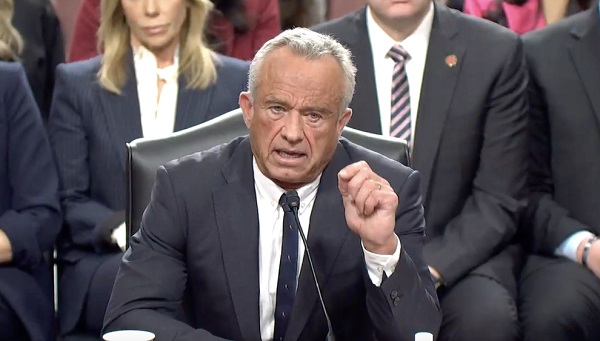
 Autism1 day ago
Autism1 day agoNIH, CMS partner on autism research
-
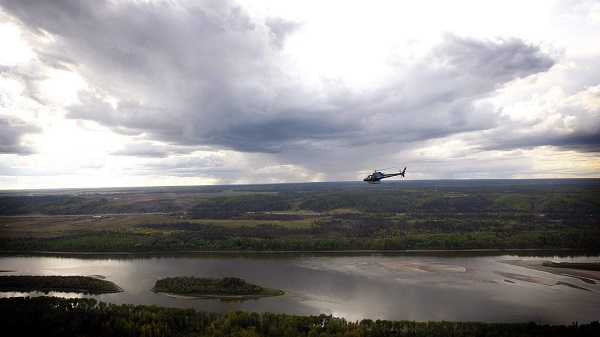
 Alberta2 days ago
Alberta2 days agoEnergy projects occupy less than three per cent of Alberta’s oil sands region, report says
-

 Business18 hours ago
Business18 hours agoOttawa foresees a future of despair for Canadians. And shrugs
